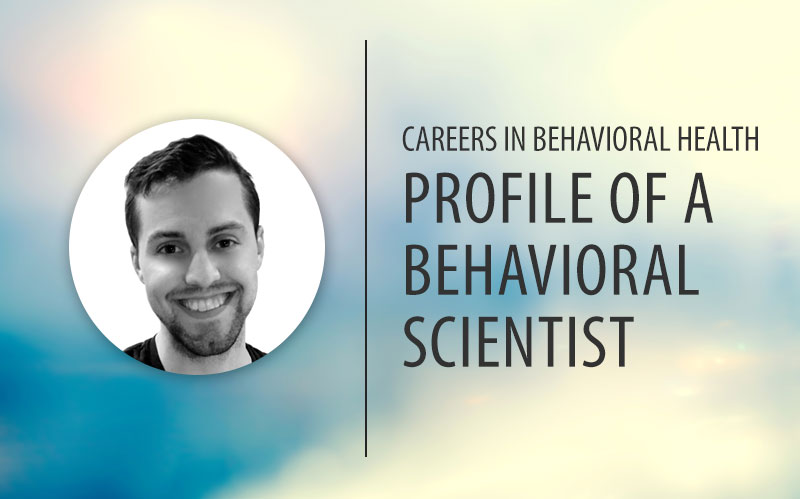Time2Track Blog
Real-Life Resources for Students & Early Career Professionals

3 Easy Mindfulness Techniques for Busy Grad Students
Do you ever feel like you are moving through grad school like a busy bee? Completely on autopilot?
Externship. Clients. Supervisors. Emails. Research. Class. Professors. Assignments. Dissertation. Family. Friends.
Sometimes it can all seem like one, big blur.
As graduate students in the mental health field, we are tasked with the challenge of helping others achieve mental wellness. However, in focusing on the wellbeing of others, we often completely forget to take care of our own emotional health.

Planned Client Termination: It’s Hard to Say Goodbye
Planned client termination may be one of the hardest aspects of clinical work.
Although planned termination is often a great opportunity for both the client and therapist to gain additional insights, it can lead to a variety of thoughts and emotions that can be unpleasant for all involved.

What is it Like to be a Behavioral Scientist?
This is the first article in a new series, Careers in Behavioral Health, where we’ll be interviewing professionals in the field about their educational and job experiences.
Our first professional is Jeff Doering, a behavioral scientist and part-time Ph.D. student from Winnipeg, Manitoba. Here are the questions we asked Jeff.

Should Therapists Encourage Clients to Exercise?
Most of us know that physical exercise is beneficial and necessary for attaining and prolonging good physical health. Exercising helps with maintaining and reducing weight and body fat, improving cholesterol, and reducing the chance of developing cardiovascular disease and type II diabetes, among many other physical health benefits.
The question that has come up in recent decades, and one particularly salient for mental health professionals, is whether exercise helps with our mental health as well, and if so, how?

5 Ways to Help Your Marriage Thrive During Grad School
“Being a graduate student is like becoming all of the Seven Dwarves. In the beginning you’re Dopey and Bashful. In the middle, you are usually sick (Sneezy), tired (Sleepy), and irritable (Grumpy). But at the end, they call you Doc, and then you’re Happy.” –Ronald Azuma
Grad school is not meant to be a walk in the park. The responsibilities associated with being a grad student involve completing coursework, providing treatment, conducting testing/assessment evaluations, working on research projects, teaching courses, fulfilling practicum requirements, preparing for supervision meetings, writing your thesis, dissertation, and clinical documentation, and involvement in professional organizations (just to name a few).
These tasks are doable. They require a lot of work and time management skills, but they are doable.
But what if you have a spouse at home who expects your time and wonderful attentive nature? You won’t be the only one who’s Grumpy. Being a spouse requires an even greater commitment.

How to Make Your Conference Presentation Memorable
Every semester that I teach public speaking, I ask my students one question: how many of you are nervous about taking this class?
I’ve done this long enough now to know what to expect – and I am rarely surprised. Most indicate that they are extremely nervous about giving speeches in front of groups. Why shouldn’t they be?
If I’m going to talk about making a memorable conference presentation, I think it makes sense to first address the fears that often go along with speaking in front of an audience.
Time2Track Tips: Tracking Hours After Graduation
Behavioral health students know how important it is to keep detailed records of their clinical hours during practicum and internship training, especially when those hours have to be signed off on by supervisors and submitted to their schools.
But what about after graduation?
All states and provinces require a certain number of supervised hours to be accrued in order to obtain a license for practice (along with other requirements). Each state and province has their own set of rules depending on the license you’re working toward.
Since licensure is the final step in your journey to becoming a licensed professional, it’s important that it go smoothly. Tracking hours is just one part of it, but it’s a very important part. Here are some tips, frequently asked questions, and instructions for tracking hours during this final step.

Choosing & Interviewing at a Forensic Site
If you have been following my blog postings for Time2Track, you’ve read about what kind of training programs are available to those of you interested in (and using the term broadly) forensic mental health work. I’ve also discussed the complexities of instituting and maintaining boundaries with forensic clients.
Now, I’m going to break down the forensic practicum placement process in three parts.
Part I (below) will talk about how you might choose and then how you prepare for an interview with a forensic-oriented site. I use the term “forensic-oriented” to be broadly inclusive of any mental health training site for masters or doctoral level trainees that will work in a place where psychology and the law intersect.
Part II will touch on what to do after you’ve accepted your forensic placement offer but before you actually begin your training.
Part III will then address what you might actually get to do as a trainee in a forensic-oriented site.
Now, I’m going to break down the forensic practicum placement process in three parts.
Part I (below) will talk about how you might choose and then how you prepare for an interview with a forensic-oriented site. I use the term “forensic-oriented” to be broadly inclusive of any mental health training site for masters or doctoral level trainees that will work in a place where psychology and the law intersect.
Part II will touch on what to do after you’ve accepted your forensic placement offer but before you actually begin your training.
Part III will then address what you might actually get to do as a trainee in a forensic-oriented site.

Finding Practicum & Internship Sites in a Small Town
Some graduate programs afford students the opportunity to spend their summers back home as opposed to requiring summer courses. Online graduate programs sometimes require students to locate their own training opportunities wherever they are located.
For students coming from larger towns and cities, this can be a promising option. However, for other students like myself, home has more wildlife than people.
After going through the process of finding summer practicum and internship positions in my small hometown multiple times, I have learned some approaches that have aided me in this process despite my initial hesitation.

How Therapists Can Write For The Web…Without Boring Their Readers
Whether it’s writing for your private practice website, starting a new psychotherapy blog, or building exposure by writing guest posts, writing online can be a big boost to your career.
Unfortunately, graduate school doesn’t prepare you for writing for the web. If you write a blog post the same way you write an academic paper, your readers will quickly click away in search of more interesting content.
Fortunately, writing for the web isn’t difficult. Here are a few tips to get you started.
